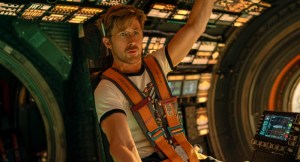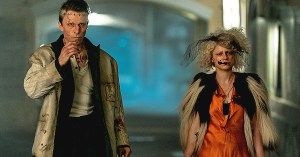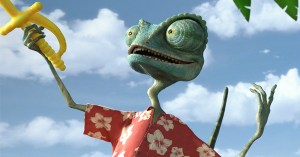Sydney Film Festival: Official Competition Continues
Fractured dreams and a refugee boat journey staged in a factory

Face
“It’s better to impose than to hide what one has.”
Well, Tsai Ming-liang’s Face is certainly imposing. Visually, audibly, thematically and cinematically, Face is definitely not for the faint of heart.
“Welcome to my dream,” Tsai said by way of introduction. And as with any dream, the film is entirely open to interpretation and indeed eschews any rational, cinematic conventions. With its obscure storyline of a director dealing with the death of his mother and the players in his production, Face is much more about the visual experience. In fact in the post screening Q&A Liang admitted, “I’m not here to tell you a story.”
So what is the film if not a story? Tsai seems fascinated with reflections and refractions. This speaks not only to his marvellous use of mirrors (particularly in the Tuilerie Garden scenes), but of water, windows and especially light. Perhaps this was drawn from the idea of a face in the mirror, or — considering the Louvre commissioned this film — the impressive glass pyramids by I.M Pei might have informed Tsai’s reflections.
There is no doubt Tsai’s compositions are spectacular. His use of deep focus and shots of fearless duree are reminiscent of Antonioni and Truffaut. Indeed both are referred to in the film, with the final shot of 400 Blows featured as a flip book and Antonioni cited in a back-and-forth naming of filmmakers. The temporality of Face certainly refashions the Deleuzian time-image favoured by Antonioni in particular, while the cast is certainly a tribute to Truffaut. Not only does Jean-Pierre Léaud reassume the name Antoine (from 400 Blows), but Jeanne Moreau and Fanny Ardant were both cinematic and romantic loves of the famed director.
Face may be refuse to tell you a story, but it will dazzle you with stunning costumes by Christian Lacroix and some truly beautiful tableaux. You’ll also be privy to hidden parts of the Louvre, including an overtly reflexive shot in an underground river. So while you could certainly call this film an imposing work of self-indulgence, it’s perhaps worth asking, what dream isn’t?

Missing Water
Can you imagine what it was like?
Khoa Do asks a lot from his audience in his ambitious third feature Missing Water. In this highly personal story, the director recounts the dangerous and harrowing flight of refugees from post-war Vietnam. Some 1.5 million people took to boats — often barely warranting the name — in the pursuit of freedom, claiming the lives of 600,000.
The most striking feature of this film is the fact that the re-enactment takes place in a sewing factory. The production designers have done an ingenious job fashioning a boat out of tables, sewing machines and racks of clothes. It may take a while to get used to the conceit, but if you can get on board (terrible pun intended), then you’re definitely in for a compelling experience.
For a film so pared back in setting, the onus is more squarely on the actors to carry this story. And for the most part they succeed. The two sisters, Kim (Kathy Nguyen) and Hanh (Sheena Pham) are wonderful together; teasing and comforting each other in turn, with recurring jokes that take you to the heart of their loving relationship. Both performances develop as the film progresses and both are clearly invested in relating this story. Vico Thai as Chau also has some good moments, though his character seems to be underdeveloped compared with the sisters, which results in his story not translating as well to the audience.
However Hieu Phan powerfully embodies the character of Uncle, which is a painful re-enactment of his own journey undertaken 30 years ago. At the post screening Q&A Phan spoke candidly about how he wept during rehearsals as the memories of his experience came flooding back. So again, while his character may have been limited to the more symbolic and melodramatic scenes, no one can fault his absolute commitment to the role.
Alongside his cast, Do also shoulders the huge burden to capture this Spartan setting with innovative cinematography. Only rarely resorting to rocking the camera in mimicry, Do’s compositions succeed in being emotive and intriguing. Interacting well with his set, he not only establishes the reality of this rickety boat, but captures the plight of these people in a provocatively cinematic way.
Missing Water is a courageous film on many levels. For Do, the responsibility of telling the story of his people must have been intimidating at times. So too, the decision to navigate a film set in a sewing factory and recounted in Australian English. The result may be too much of a reach for some, but for those willing to take the journey, these elements coalesce in an enlightening and moving story; one that, translated into Vietnamese, means “Missing Country”.
For full program details, see the Sydney Film Festival’s website



